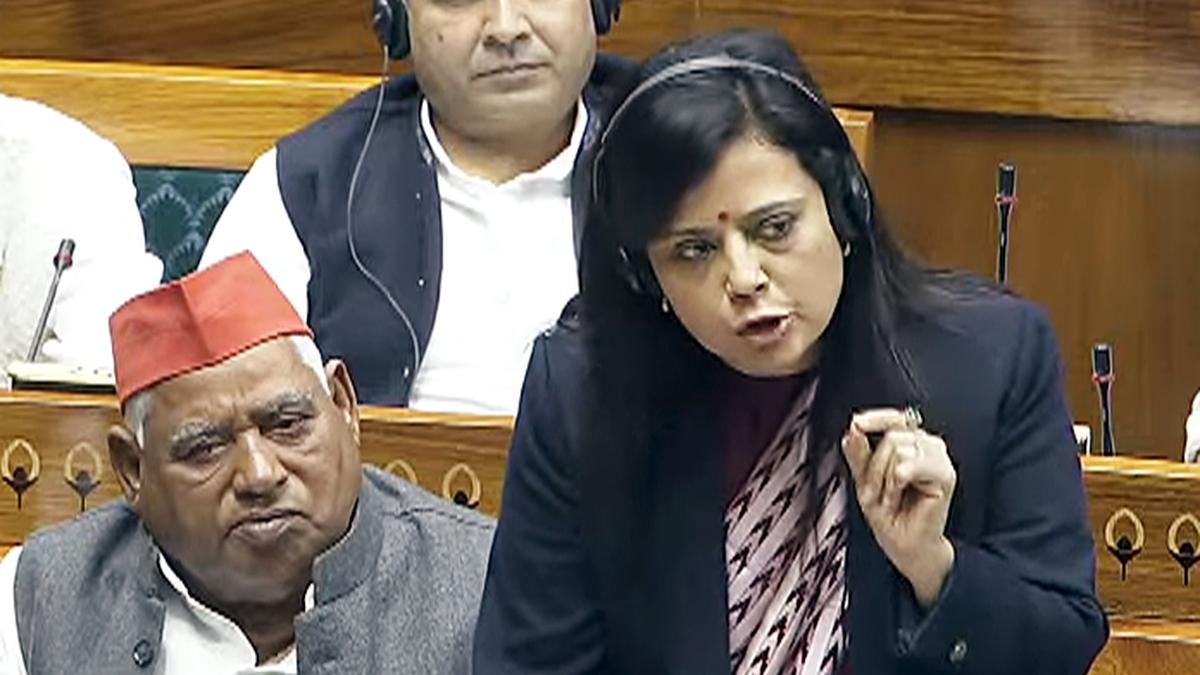 |
|
The Lok Sabha witnessed significant disruptions on Friday, triggered by Trinamool Congress MP Mahua Moitra's comments regarding the death of Judge B.H. Loya. Moitra's remarks, made during a debate on the 75th anniversary of the Indian Constitution, criticized the BJP's alleged attempts to silence dissenting voices and institutions. She insinuated wrongdoing in the circumstances surrounding Judge Loya's death, a case that had previously been investigated and concluded by the Supreme Court. This ignited a heated exchange, leading to two adjournments of the House.
Parliamentary Affairs Minister Kiren Rijiju strongly condemned Moitra's statements, emphasizing that the Supreme Court had already settled the Judge Loya case. He issued a stern warning to Moitra, threatening parliamentary action. Rijiju's intervention further escalated tensions, prompting Opposition MPs to protest vehemently. They stormed the Well of the House, demanding an apology from Rijiju for what they perceived as a threat to a fellow MP. Moitra herself took to X (formerly Twitter) to refute Rijiju's account of the events, asserting that it was he, not she, who should face repercussions for his actions.
The subsequent resumption of the Lok Sabha session saw continued protests from senior Opposition members. Saugata Roy of the Trinamool Congress and K.C. Venugopal of the Congress challenged Rijiju's authority to reprimand Moitra, arguing that Speaker Om Birla, as the custodian of the Lok Sabha, should have handled the situation. Venugopal explicitly criticized Rijiju for 'hijacking' the proceedings and threatening Moitra. The conflict highlighted the broader tension between the ruling BJP and the Opposition parties over issues of judicial independence and alleged government overreach.
Beyond the immediate controversy, Moitra's speech offered a broader critique of the judiciary, albeit without explicitly naming former Chief Justice of India D.Y. Chandrachud. She expressed concern over the perceived erosion of the independence and integrity of constitutional courts. Her comments focused on what she saw as a pattern of selective granting of bail to individuals perceived as aligned with the ruling party, while others critical of the government remained incarcerated. This sparked another layer of debate, adding to the already tense atmosphere within the Lok Sabha.
The incident underscores the deep political divisions within India's Parliament. The clash over Moitra's remarks reflects a broader conflict between the ruling party and the Opposition regarding issues of accountability, freedom of speech, and the independence of the judiciary. The debate itself highlights the complexities of navigating sensitive issues within the parliamentary framework and the delicate balance between parliamentary procedure and freedom of expression. The controversy surrounding Judge Loya's death continues to be a highly sensitive and politically charged issue, and Moitra's comments have served to reignite this debate within the Lok Sabha.
The handling of the situation by the Parliamentary Affairs Minister and the subsequent response from the Opposition raise questions about parliamentary decorum and the appropriate mechanisms for addressing such conflicts. The incident raises concerns about potential threats to freedom of speech within the Parliament, and the importance of maintaining respect for the institution and its processes. The ongoing tensions between the BJP and the Opposition suggest that similar confrontations are likely to occur in future sessions of Parliament, highlighting the need for effective mechanisms to manage these disagreements constructively.
The broader implications of Moitra's criticism of the judiciary, even if veiled, are significant. It highlights ongoing concerns about perceived biases and the potential influence of political considerations on judicial decisions. This aspect of the debate transcends the immediate parliamentary conflict and touches upon broader discussions about the role of the judiciary in safeguarding constitutional values and upholding the rule of law. The accusations of political interference in judicial processes are serious and warrant careful consideration, irrespective of the immediate fallout of the Lok Sabha incident.
In conclusion, the disruption in the Lok Sabha resulting from Moitra's comments on Judge Loya's death is not an isolated incident but rather a reflection of deeper political and ideological divides within India. It emphasizes the complexities of balancing freedom of speech with maintaining order and decorum within Parliament, and raises important questions about the role of the judiciary in a functioning democracy. The incident serves as a reminder of the ongoing tensions between the ruling party and the Opposition, and the challenges in navigating these differences within the parliamentary framework.
Source: Lok Sabha witnesses disruption after Trinamool MP Mahua Moitra’s remarks on Judge Loya’s death
